
Filter News
Area of Research
- (-) Energy Science (197)
- (-) Mathematics (1)
- Advanced Manufacturing (10)
- Biological Systems (2)
- Biology and Environment (137)
- Biology and Soft Matter (1)
- Computational Biology (2)
- Computational Engineering (3)
- Computer Science (9)
- Electricity and Smart Grid (3)
- Energy Sciences (1)
- Functional Materials for Energy (2)
- Fusion and Fission (9)
- Fusion Energy (3)
- Isotope Development and Production (1)
- Isotopes (4)
- Materials (136)
- Materials Characterization (1)
- Materials for Computing (21)
- Materials Under Extremes (1)
- National Security (30)
- Neutron Science (130)
- Nuclear Science and Technology (9)
- Quantum information Science (2)
- Sensors and Controls (1)
- Supercomputing (103)
- Transportation Systems (1)
News Topics
- (-) Bioenergy (26)
- (-) Clean Water (8)
- (-) Composites (17)
- (-) Energy Storage (71)
- (-) Environment (54)
- (-) Grid (39)
- (-) Machine Learning (7)
- (-) Materials Science (26)
- (-) Mercury (3)
- (-) Neutron Science (11)
- (-) Summit (4)
- 3-D Printing/Advanced Manufacturing (79)
- Advanced Reactors (6)
- Artificial Intelligence (8)
- Big Data (5)
- Biology (11)
- Biomedical (6)
- Biotechnology (4)
- Buildings (38)
- Chemical Sciences (14)
- Computer Science (25)
- Coronavirus (12)
- Critical Materials (9)
- Cybersecurity (8)
- Exascale Computing (2)
- Fossil Energy (2)
- Frontier (2)
- Fusion (1)
- High-Performance Computing (6)
- Hydropower (3)
- Isotopes (1)
- Materials (35)
- Mathematics (2)
- Microelectronics (1)
- Microscopy (8)
- Molten Salt (1)
- Nanotechnology (8)
- National Security (5)
- Nuclear Energy (7)
- Partnerships (12)
- Physics (1)
- Polymers (11)
- Quantum Science (2)
- Security (6)
- Simulation (4)
- Space Exploration (3)
- Statistics (1)
- Transportation (66)
Media Contacts
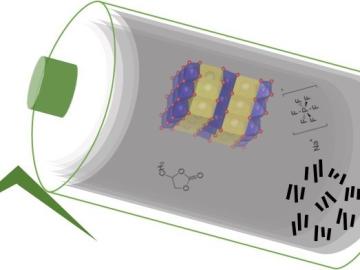
Researchers at ORNL demonstrated that sodium-ion batteries can serve as a low-cost, high performance substitute for rechargeable lithium-ion batteries commonly used in robotics, power tools, and grid-scale energy storage.

Energy storage startup SPARKZ Inc. has exclusively licensed five battery technologies from the Department of Energy’s Oak Ridge National Laboratory designed to eliminate cobalt metal in lithium-ion batteries. The advancement is aimed at accelerating the production of electric vehicles and energy storage solutions for the power grid.
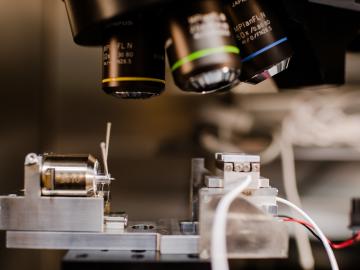
The formation of lithium dendrites is still a mystery, but materials engineers study the conditions that enable dendrites and how to stop them.
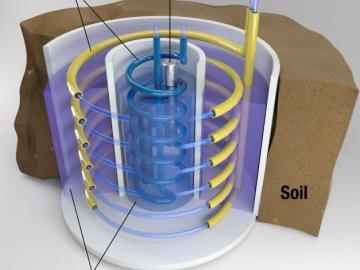
Oak Ridge National Laboratory researchers created a geothermal energy storage system that could reduce peak electricity demand up to 37% in homes while helping balance grid operations.

To better determine the potential energy cost savings among connected homes, researchers at Oak Ridge National Laboratory developed a computer simulation to more accurately compare energy use on similar weather days.

While Tsouris’ water research is diverse in scope, its fundamentals are based on basic science principles that remain largely unchanged, particularly in a mature field like chemical engineering.

A technology developed at the ORNL and scaled up by Vertimass LLC to convert ethanol into fuels suitable for aviation, shipping and other heavy-duty applications can be price-competitive with conventional fuels
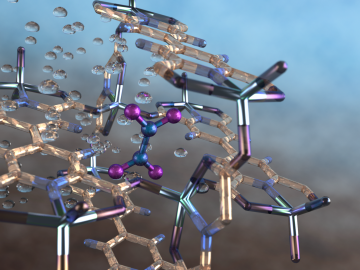
An international team of scientists, led by the University of Manchester, has developed a metal-organic framework, or MOF, material

Students often participate in internships and receive formal training in their chosen career fields during college, but some pursue professional development opportunities even earlier.
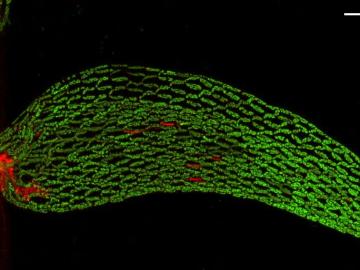
A team of scientists found that critical interactions between microbes and peat moss break down under warming temperatures, impacting moss health and ultimately carbon stored in soil.


